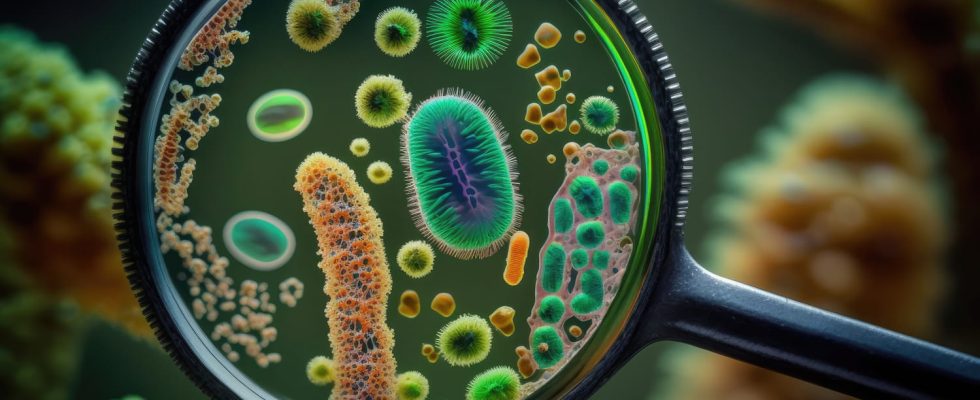While Cronobacter infections are rare, they can be dangerous. Explanations with Pauline Kooh, scientific project manager within the food risk assessment unit at ANSES.
What is Cronobacter?
Cronobacters are bacteria present in the environment. They are considered opportunistic pathogens that can be responsible for infections, mainly in newborns (infants less than two months premature or with low birth weight) and in people elderly or immunocompromised. These bacteria have the ability to survive well in dry environments for long periods of time. They are found in the food powders such as infant formula, milk powder and powder production factory environments. “Infections with Cronobacter bacteria are relatively rare. Between 2012 and 2017, 6 cases have been recorded in France. Although there is no surveillance system, cases are recorded indirectly by Public Health France, via the nosocomial infection surveillance system. The last epidemic in France dates from 2004 and concerned newborns in five hospitals (9 cases, including 2 deaths)“, explains Pauline Kooh, scientific project manager within the food risk assessment unit at ANSES.
Contamination occurs exclusively through food. Foods at risk include food powders intended for infants and the elderly, including preparations for special medical purposes. Infant powders are not sterile; pathogenic bacteria such as Cronobacter or salmonella. “When reconstituting the powder, these bacteria can multiply if conditions are favorable, e.g. if the bottle is left for more than 2 hours at room temperature. Nasogastric feeding tubes premature babies also represent factors of nosocomial transmission“, indicates the head of scientific projects at Anses.
What are the dangers of Cronobacters?
Cronobacter are opportunistic pathogens that can cause different types of infections. In newborns, they are essentially responsible for meningitis, septicemia and necrotizing enterocolitis (intestinal necrosis). “Early signs of Cronobacter infection may include fever or difficulty eating. In elderly or immunocompromised people, Cronobacter can cause different types of infections such as abscesses, bacteremia, pneumonia or even urinary infections“, specifies the specialist.
“The diagnosis is confirmed by identification of bacteria in bloodcerebrospinal fluid or patient stools”, says Pauline Kooh.
Treatment is generally based on administration of antibiotics.
► Cronobacter is a fairly common pathogen in the environment of infant powder production factories. “In this production sector, Cronobacter and salmonella are considered significant dangers, the control of which is essential to ensure product safety. Food powder manufacturers can avoid product contamination by the rigorous application of general hygiene measures (ingredient analysis, prevention of environmental contamination, cleaning and disinfection, etc.)”observes the scientist.
► For the consumer, these are the poor conditions for reconstituting and storing infant milk which promote the multiplication of the bacteria. “Hence the necessity to scrupulously apply hygiene measures (wash your hands before preparing the bottle, use water intended for human consumption, observe milk conservation measures: a prepared bottle must be consumed within an hour or kept in the refrigerator at 4°C for 48 hours to the maximum; clean the bottle quickly after use). For the premature or hypotrophic newbornsit is recommended to use sterile liquid preparations“, recommends Pauline Kooh.
Thanks to Pauline Kooh, scientific project manager within the food risk assessment unit at ANSES.
